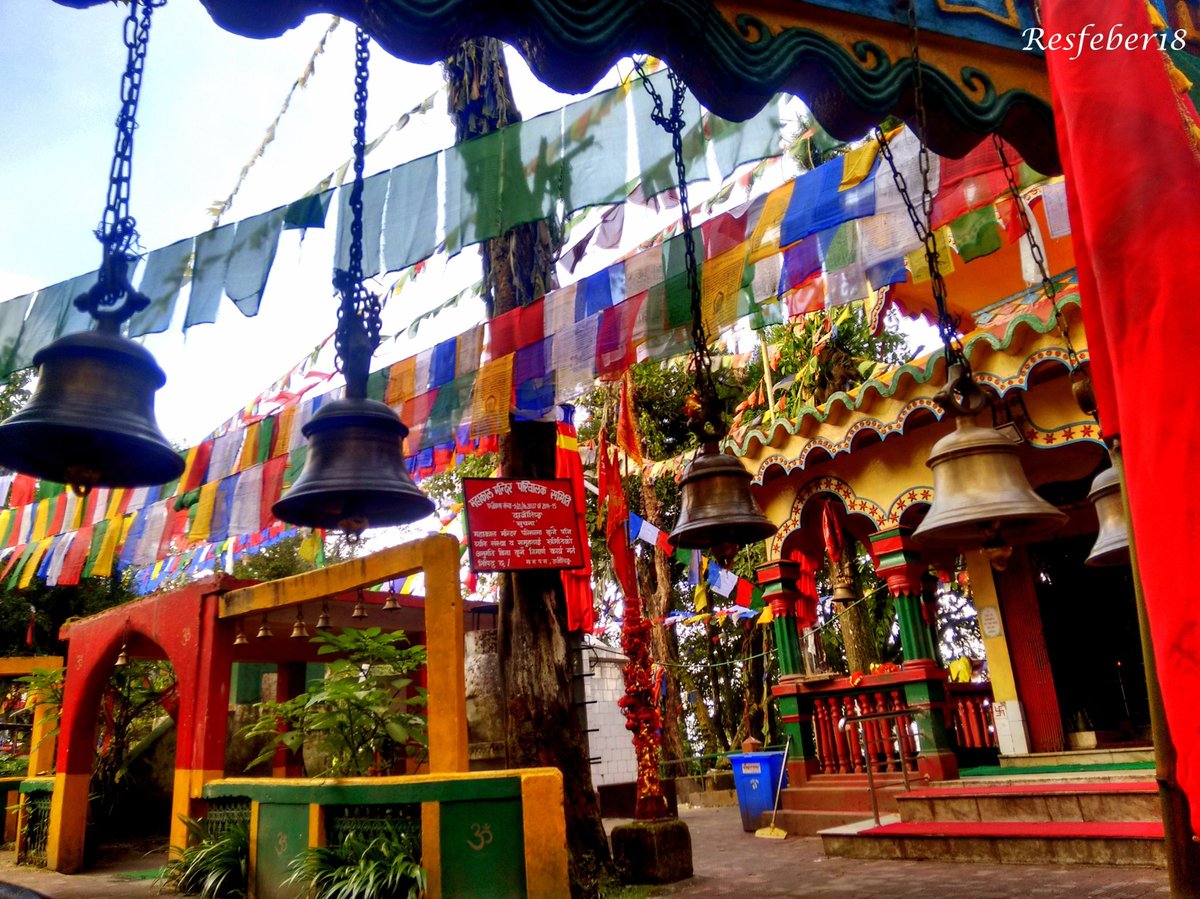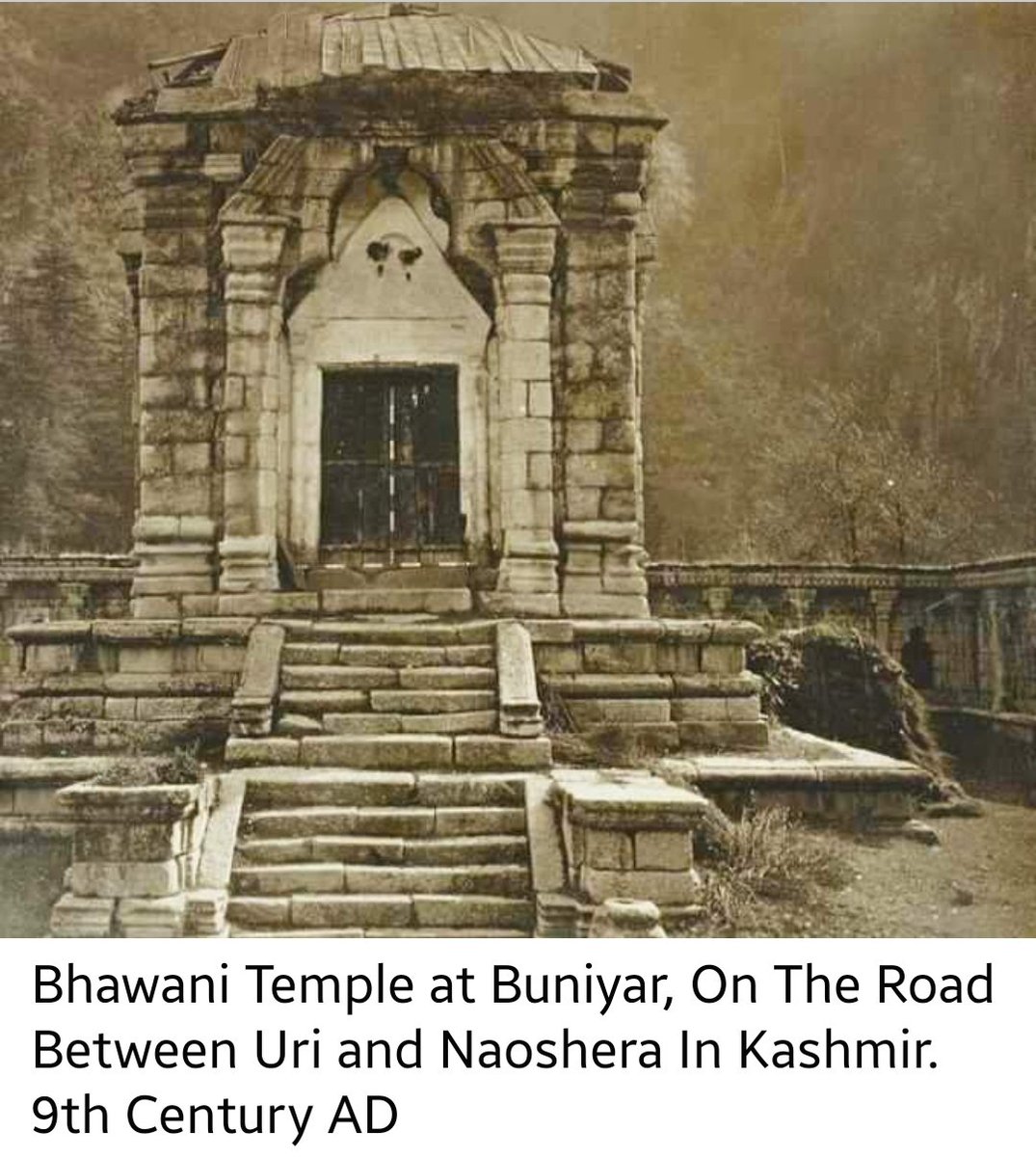
GOLDEN THRONE or Chinnada Simhasana or Ratna Simhasana in Kannada,was the royal throne of rulers of Mysore.Its one of the main attractions of Mysore Palace. Its kept for public viewing only during Dasara Festival and on rest of the days its disassembled and kept in safe lockers. 

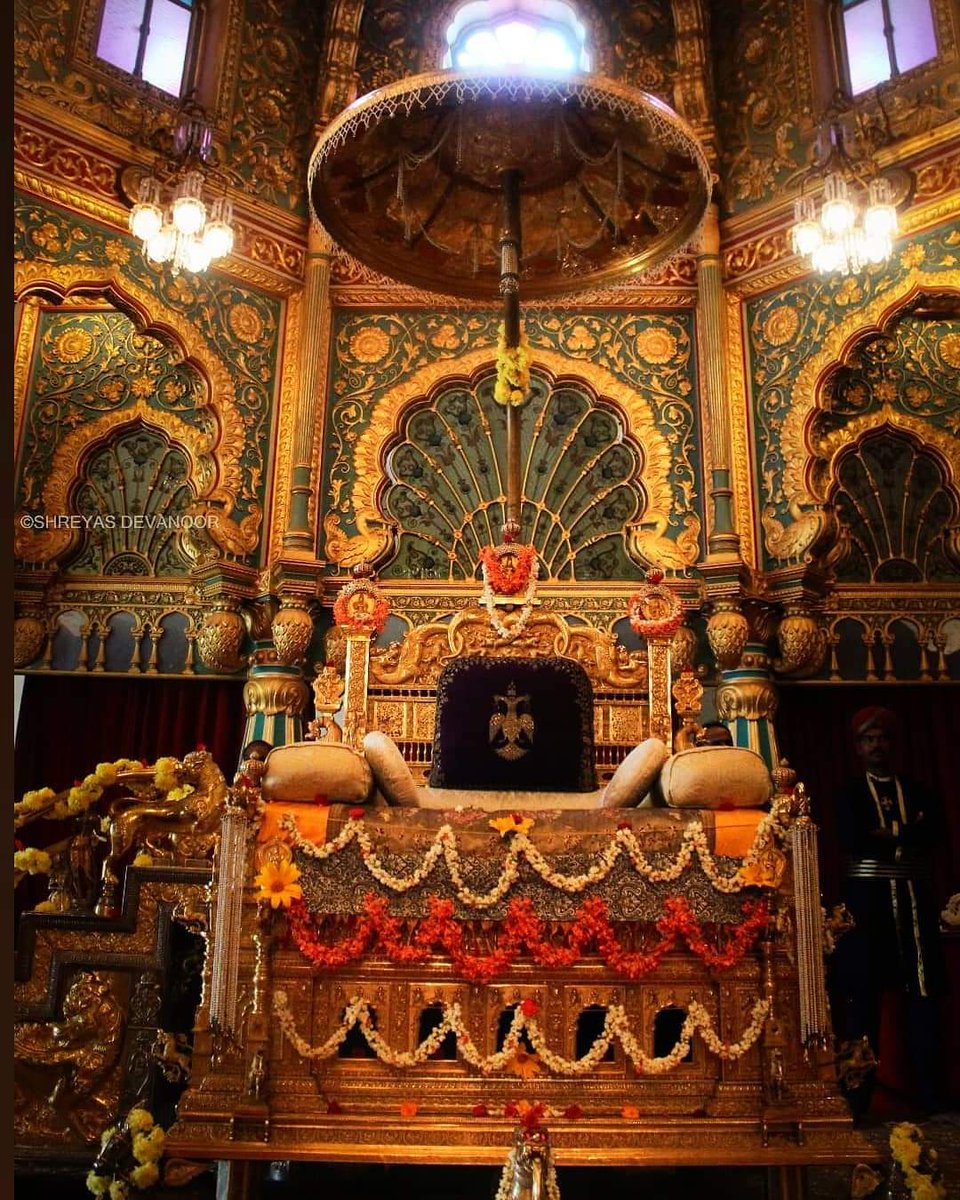

In the Northern most bay of Gombe Thotti is the Golden Howdah also called the Ambari.the core of this Howdah is a wooden structure in the form of a mantapa which is covered with 80 kgs of Gold Sheets having intricate designs consisting of scrolls,foliage and flowers. 
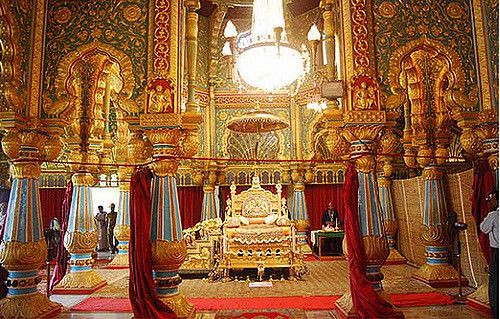
Focus of the Dasara Procession’s grand finale. Either side of Howdah are 2 ivory fly whishks, finely cut strips of ivory form the bristles which are tipped with zari, type of thread made from thinnest gold or silver wire. 2 Lights attached to the Howdah red and green r battery.. 
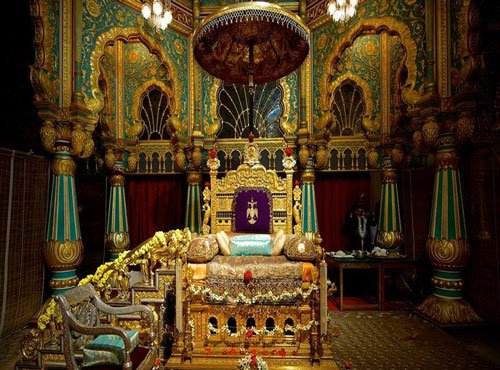
..operated and used to control pace of the procession by the King. King would customarily stop to receive floral offerings form his subjects. Elephant would lift the garland up to the king who would touch the flower then the elephant would hand it back. 
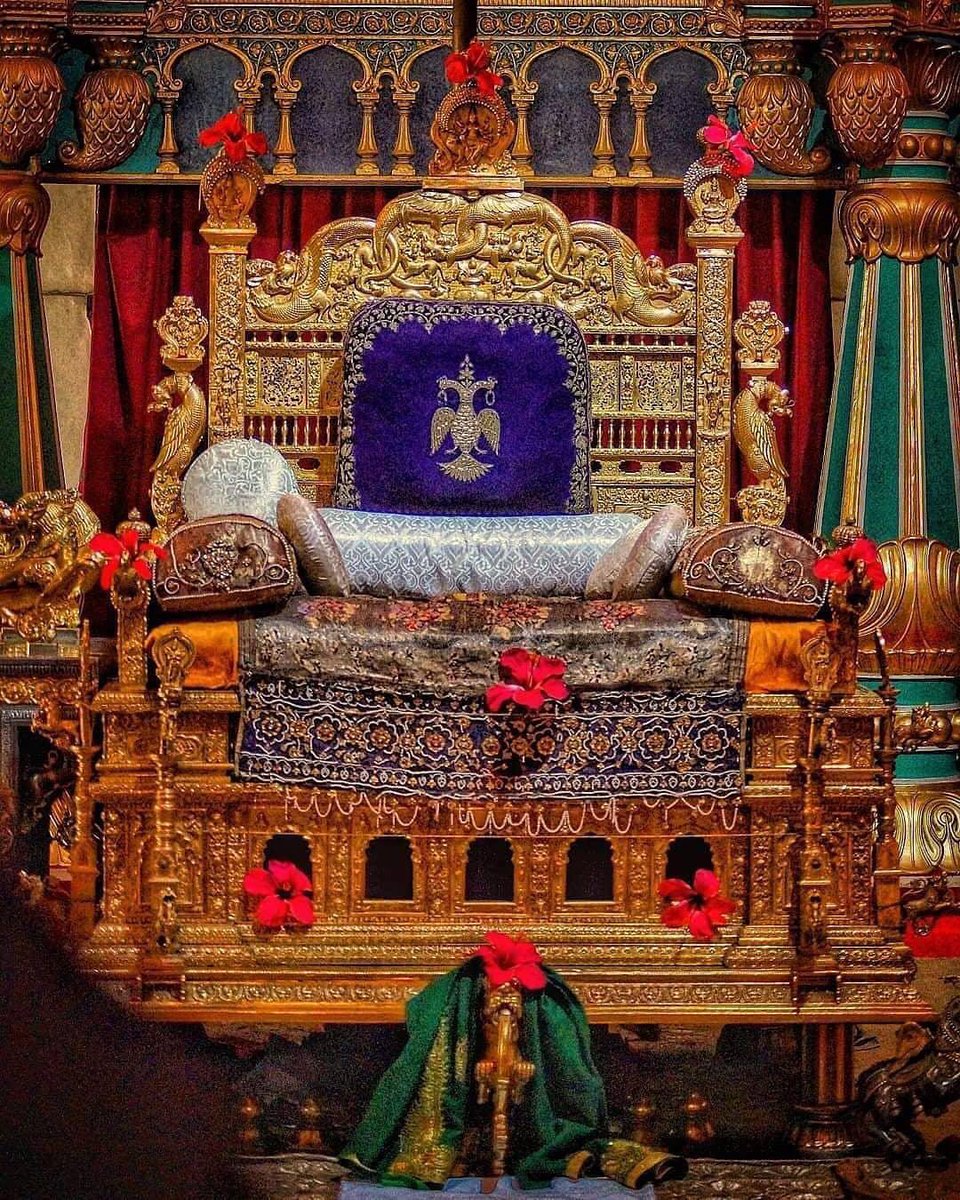
During the days of yore, the king would sit in the Howdah accompanied by his brother and nephew. Sri Jayachamarajendra Wadiyar as the last member of the royal family to ride in Golden Howdah. Seven cannons were fired to make momentous events. 
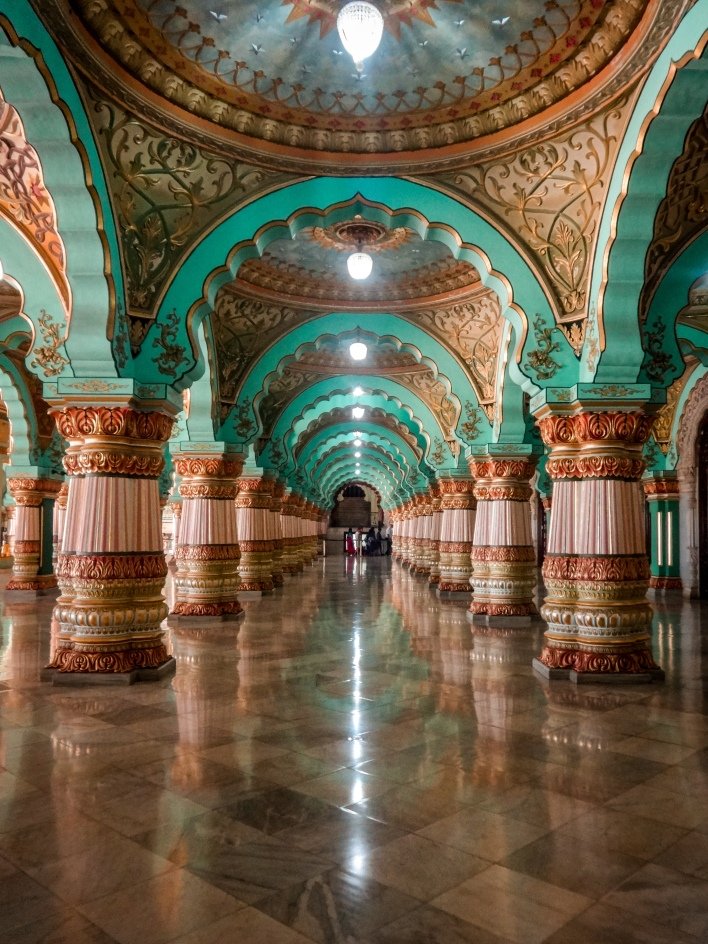
The tradition of the Dasara Procession continues to this day also but the idol of the presiding diety of the Mysuru city, Godess Chamundeshwari, is taken in procession in the Golden Howdah.
The golden throne, consists of the main seat, a staircase, and the golden umbrella.
The golden throne, consists of the main seat, a staircase, and the golden umbrella.
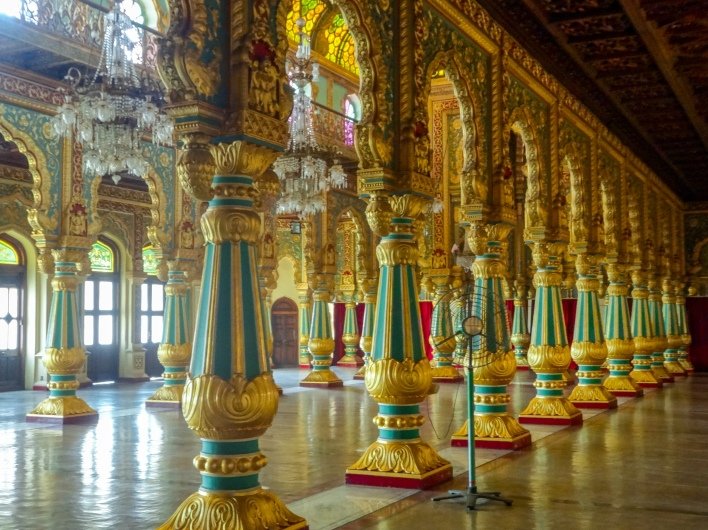
A benedictory verse, forming part of the Sanskrit inscriptions, consisting of 24 slokas in Anusthup metre, engraved on the rim of the umbrella, states as follows :
"Oh, King Krishna, Lord of the earth, sone of the illustrious Chamaraja, you are resplendent with the blessings...
"Oh, King Krishna, Lord of the earth, sone of the illustrious Chamaraja, you are resplendent with the blessings...
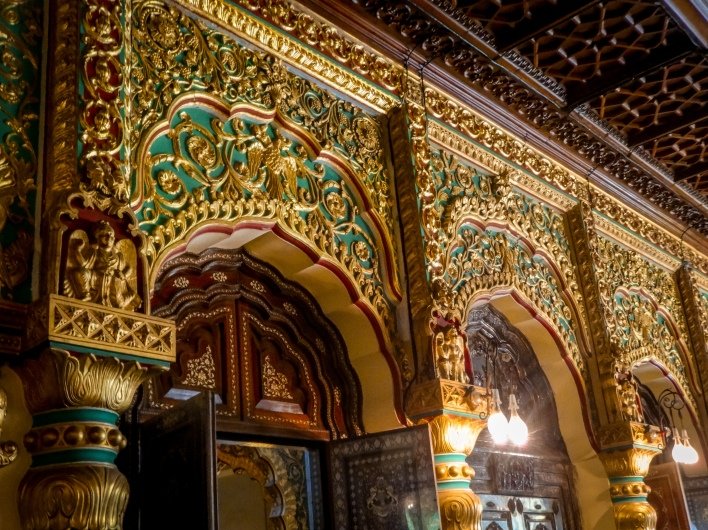
..of Goddess Chamundeshwari.U r the lord of the Karnataka Ratna Simhasana.U are the full moon of the autumn to the milky ocean of the Yadu race. This golden umbrella of the golden throne which you have inherited from your illustrious ancestors, evokes the awe of the whole world.” 
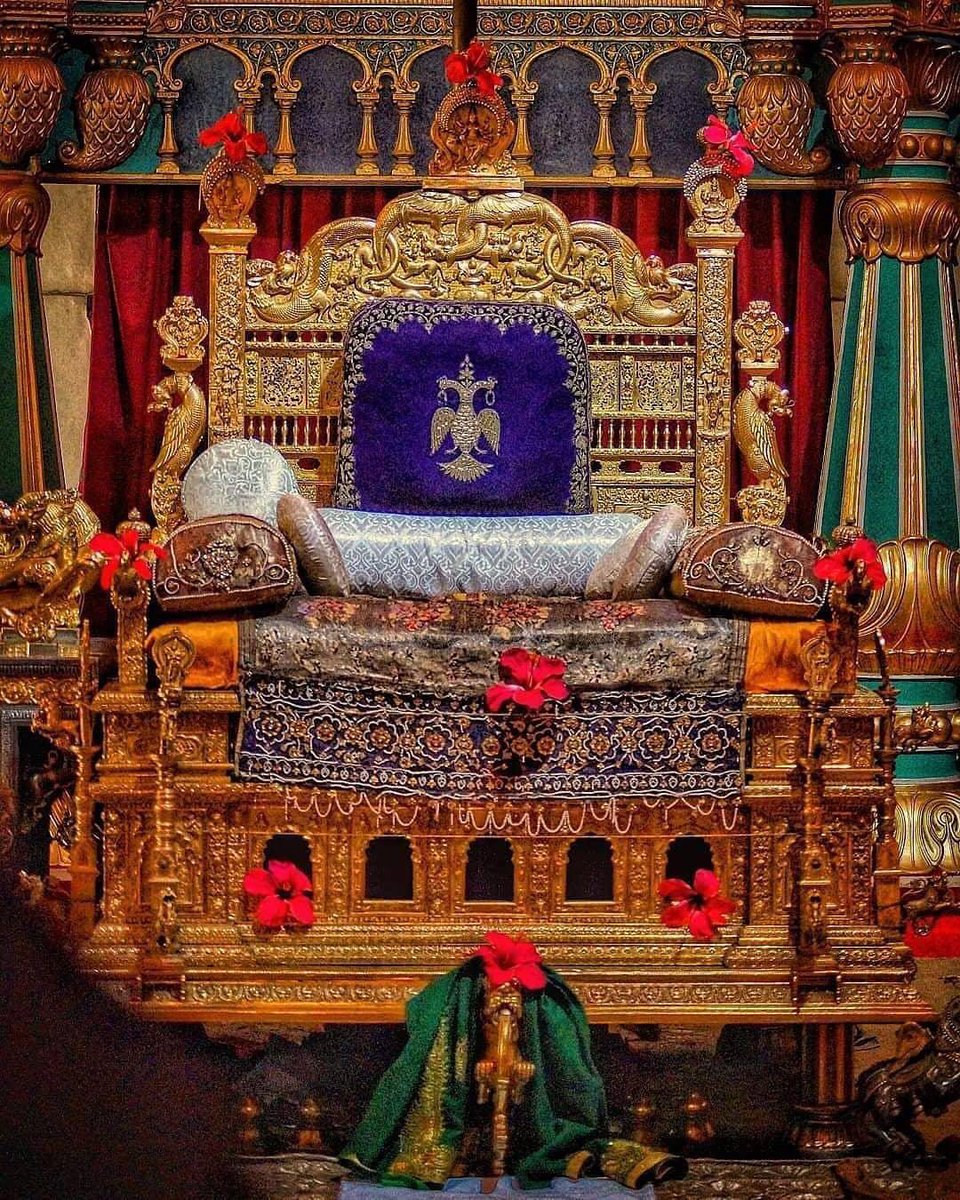
According to this epigraph, which is addressed to Krishnaraja Wadiyar III, the bejeweled Golden Throne has come down to the Mysuru Royal Family from generation of Kings. 

• • •
Missing some Tweet in this thread? You can try to
force a refresh















